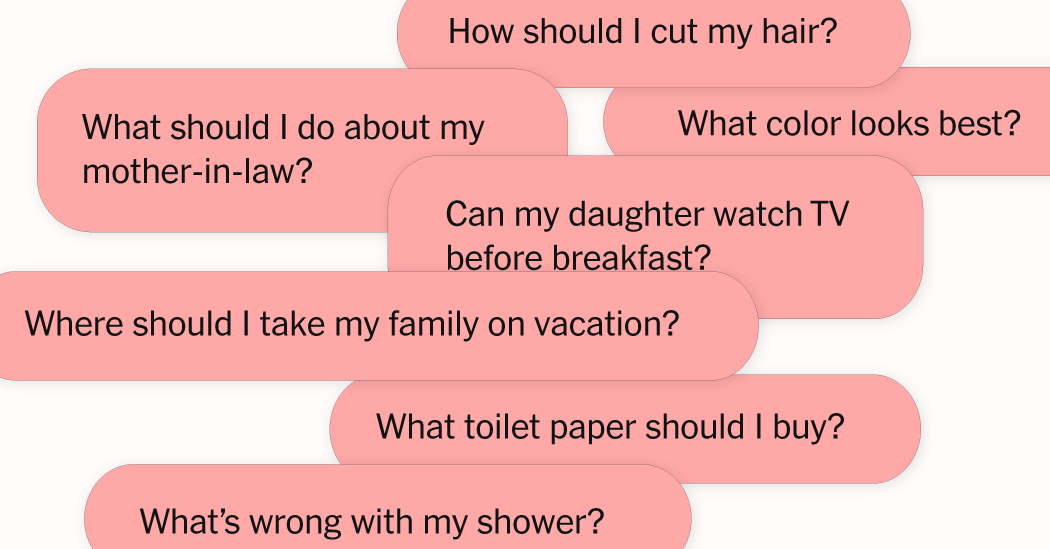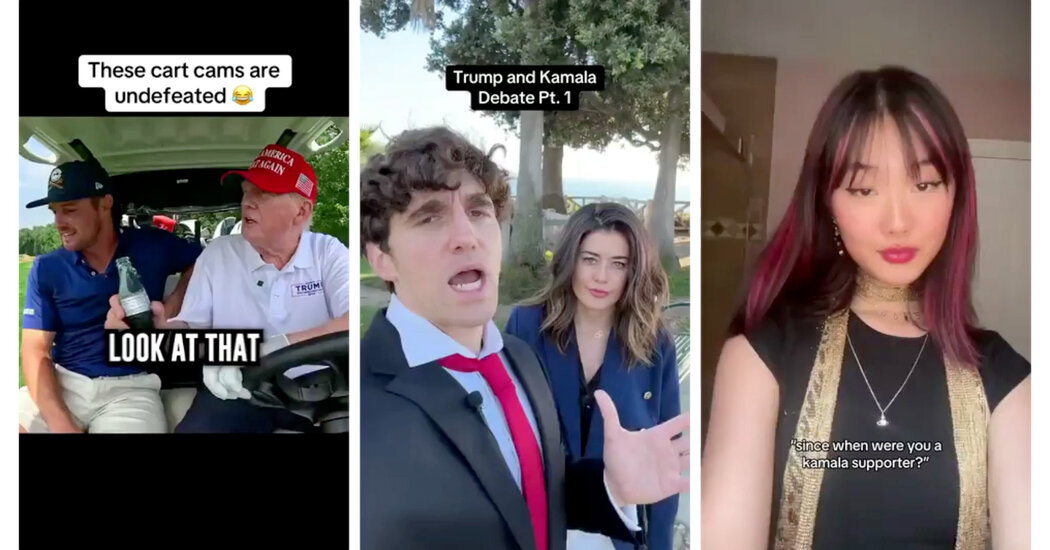House Republican leaders are pushing forward this week with a planned vote on legislation that would force the Chinese owners of TikTok to divest or face being barred in the United States, even after former President Donald J. Trump reversed course and declared himself staunchly opposed to targeting the popular social media app he once vowed to ban.
Representative Steve Scalise, Republican of Louisiana and the majority leader, said on Monday that the House would try to speed the bill to passage under special procedures reserved for noncontroversial legislation, which require a two-thirds majority for passage. The approach reflected the bill’s growing momentum on Capitol Hill during an election year in which members of both political parties are eager to demonstrate a willingness to be tough on China.
“We must ensure the Chinese government cannot weaponize TikTok against American users and our government through data collection and propaganda,” Mr. Scalise said in his weekly preview of legislation to be considered on the House floor.
The 13-page bill is the product of the Select Committee on the Chinese Communist Party, which has served as an island of bipartisanship in the polarized House. The House Energy and Commerce Committee voted unanimously last week to advance the legislation, which would remove TikTok from app stores in the United States by Sept. 30 unless its Beijing-based parent company, ByteDance, sold its stake.
But Mr. Trump, who as president issued an executive order that did exactly that, is now vocally opposing the bill, a move that will test his ability to continue tanking bipartisan legislation in Congress from the campaign trail.
Mr. Trump on Monday offered a rambling explanation for his reversal, saying that he did not want to alienate young voters or imbue Facebook, which he considers a mortal foe, with more power.
In an interview on CNBC, Mr. Trump said that he still considered TikTok a national security threat, but that banning it would make young people “go crazy.” He added that any action harming the platform would benefit Facebook, which he called an “enemy of the people.”
“Frankly, there are a lot of people on TikTok that love it,” Mr. Trump said. “There are a lot of young kids on TikTok who will go crazy without it.”
“There’s a lot of good and there’s a lot of bad with TikTok,” he added, “but the thing I don’t like is that without TikTok, you can make Facebook bigger, and I consider Facebook to be an enemy of the people, along with a lot of the media.”
It is not yet clear whether Mr. Trump’s reversal on the issue will erode the bill’s broad base of support in the House, where a brewing fight over the legislation has grown tense. Many lawmakers were irate last week when TikTok dispatched its users to flood congressional telephone lines with calls beseeching members not to shut down the platform.
“Trump’s flip-flop on TikTok puts House Republicans in a very awkward position because it forces them to choose between supporting Trump or standing up to China,” said Geoff Garin, a Democratic strategist. “Voters on both sides of the aisle do not trust China to play by any meaningful set of rules and believe that China is determined to get away with whatever it can get away with, and that would apply to China’s control over TikTok.”
The legislation is one of several efforts over the past year aimed at curtailing TikTok because of concerns that ByteDance’s relationship with Beijing poses risks to national security, and President Biden has said he would sign it.
One of the co-sponsors of the bill is Representative Elise Stefanik of New York, the No. 3 Republican, whose name is on every short list to be Mr. Trump’s running mate and who is rarely caught out of lock step with the former president.
As he cruises toward the Republican nomination, Mr. Trump is wielding a heavier hand than any time since leaving office over his party’s agenda in Congress. His vocal opposition to the pending TikTok legislation comes just weeks after he used his influence with Republicans in Congress to help tank a bipartisan immigration bill in the Senate that was touted as a once-in-a-generation opportunity for a conservative border security bill.
But unlike the issue of immigration, the two parties are not divided over TikTok; both see a political upside to backing policies that take aim at China.
Still, Mr. Trump’s advocacy against the bill appears to be having some effect. Senator Lindsey Graham, Republican of South Carolina, said on “Meet the Press” that he was “really conflicted” about the ban. In 2020, Mr. Graham defended Mr. Trump’s executive action against the company, writing on social media that the president was “right to want to make sure that the Chinese Communist Party doesn’t own TikTok and most importantly — all of your private data.”
On Sunday, Mr. Graham said that he did not yet know how he would vote on the bill if it came before the Senate. “I am definitely conflicted,” he said.
And it is not clear what the bill’s prospects would be in the Senate, where Senator Chuck Schumer, Democrat of New York and the majority leader, has not committed to bringing it up.
In a rare display of bipartisanship in the House, the top Republican and Democratic lawmakers on the China panel have used nearly identical language to describe the risks of TikTok.
“America’s foremost adversary has no business controlling a dominant media platform in the United States,” said Representative Mike Gallagher of Wisconsin, the Republican chairman. His Democratic counterpart, Representative Raja Krishnamoorthi of Illinois, said TikTok “poses critical threats to our national security” as long as it is owned by ByteDance.
But after the bill sailed through a House committee last week, Mr. Trump lashed out on Truth Social, his social media platform, writing that “if you get rid of TikTok,” it will double Facebook’s business. He said he did not want Facebook “doing better.”
Mr. Trump was barred from Facebook the day after the Jan. 6, 2021, attack on the Capitol, and reinstated early last year.
To support his “enemy of the people” claim, Mr. Trump singled out grants that Facebook’s founder, Mark Zuckerberg, made in 2020 to state and local election offices to help their administration of voting during the pandemic. Mr. Trump suggested that Mr. Zuckerberg, whose website was part of the Trump campaign’s strategy in both 2016 and 2020, should face prison time for those donations.
On Monday, asked about suspicions that he had been “paid off” to change his view on TikTok after a meeting with a major TikTok investor, the billionaire Jeff Yass, Mr. Trump denied it. Mr. Trump reportedly praised Mr. Yass, a large donor to the Club for Growth, as “fantastic,” and the group recently had a rapprochement with him after a monthslong freeze.
Through the Club for Growth, Mr. Yass has funded a major advocacy drive in Washington to stop the banning of TikTok. He and his allies have recruited several former Trump administration officials to help with the effort — including Tony Sayegh, who was a Treasury official, and Kellyanne Conway, who was a senior counselor to the president.
In the CNBC interview, Mr. Trump said he had not discussed TikTok with Mr. Yass at their meeting.
“No, I didn’t,” Mr. Trump said, saying it had been a brief meeting with Mr. Yass and his wife. “He never mentioned TikTok.”
Mr. Trump’s criticism of the new legislation is striking because of his move to restrict the company while in office. An executive order he signed in August 2020 said that TikTok’s data collection from its users “threatens to allow the Chinese Communist Party access to Americans’ personal and proprietary information.” It added that TikTok could be used to spread disinformation that benefited Beijing.
“These risks are real,” the executive order said.
Mr. Trump’s administration moved to block Apple’s and Google’s app stores from carrying TikTok over concerns about the app’s Chinese ownership. But federal courts ruled repeatedly to block Mr. Trump’s TikTok ban from taking effect.
David McCabe and Maggie Haberman contributed reporting.







